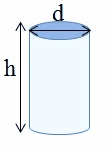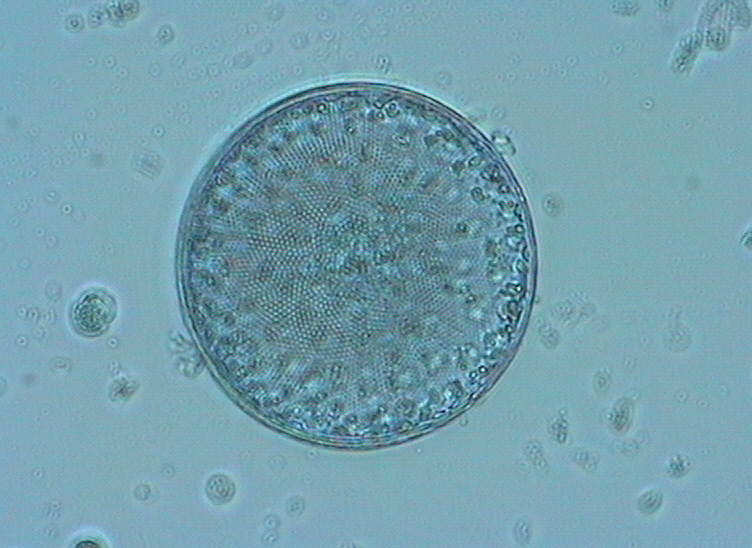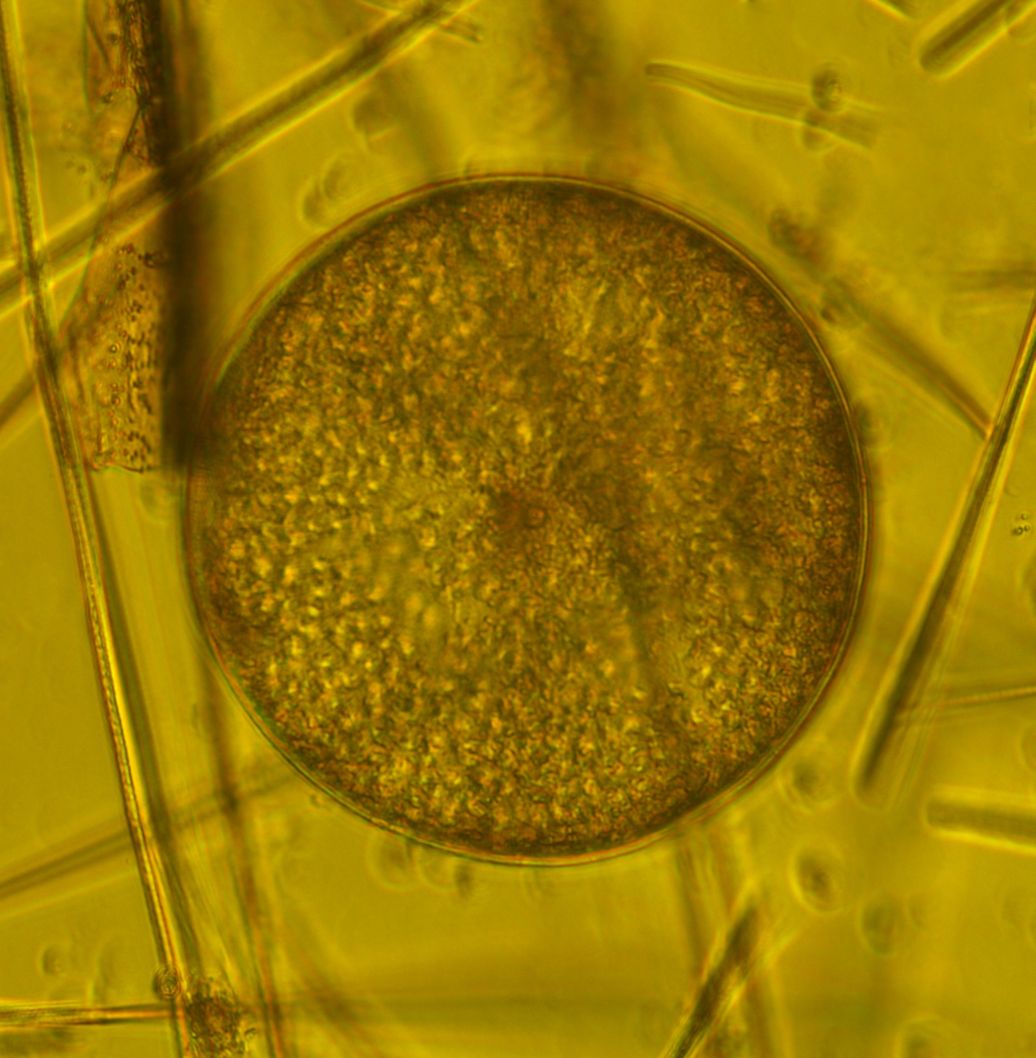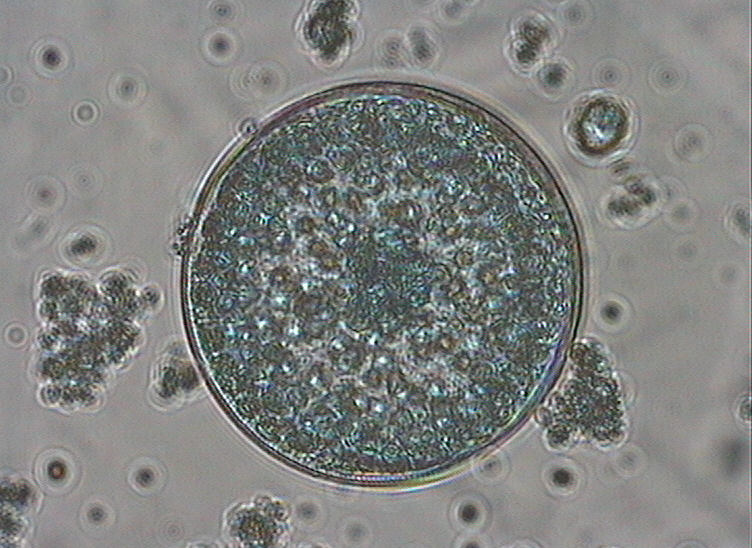
Species details
- Coscinodiscus oculus-iridis var. tenuistriata: Grunow A. (1884)
- Coscinodiscus asteromphalus var. centralis : Grunow A. (1884)
Cells discoid; valves gently convex. Numerous small platelike chloroplasts. Distinct rosette of large areolae, sometimes with a small hyaline area in the middle. Areola rows grouped into narrow bundles bordered by hyaline lines, distinct in weakly silicified valves and indistinct in coarsely silicified valves. Decussating arcs in the central part of the valve. Hyaline lines associated with labiate processes at the valve margin. Interstitial meshes present, identical with the pentagonal areola at the point of origin of an incomplete stria or an adjacent larger areola. The cribra resolved with LM, consisting of one central pore and a marginal ring of pores. Marginal processes readily resolved with LM; the smaller processes are long necked and slightly curved, the two larger processes, ca. 135 ~ apart, have two "horns".
- Cell Diameter: from 100 to 300 µm
- Areolae in 10µm: from 4 to 6 n°
Probably oceanic. Temperate or north temperate species. Atlantic, Pacific oceans.
Distribution: Europe: Norway (Naustvoll 2001). Atlantic Islands: Canary Islands (Anon, 2011). North America: Nova Scotia (Kim, Garbary & McLachlan 2004).
Australia and New Zealand: New Zealand (Harper et al. 2012). Antarctic and the subantarctic islands: Antarctica/Subantarctic Islands (Scott & Thomas 2005).
Harmful
Resistence Stages:Harmful
Phytoplankton dynamics in Pomquet Harbour, Nova Scotia: a lagoon in the southern Gulf of St., Lawrence. Phycologia 43, Kim K.Y., Garbary D.J., McLachlan J.L., 2004, 311-328.
Diatoms. In: Antarctic marine protists. (Scott, F.J. & Marchant, H.J. Eds), Canberra & Hobart: Australian Biological Resources Study; Australian Antarctic Division, Scott F.J., Thomas D.P., 2005, 13-201.
Marine diatoms. In: Identifying Marine Phytoplankton., (Tomas, C.R. Eds), San Diego: Academic Press., Hasle G.R., Syvertsen E.E., 1997, 5-385
Phylum Ochrophyta: brown and golden-brown algae, diatoms, silicioflagellates, and kin., In: New Zealand inventory of biodiversity. Volume Three. Kingdoms Bacteria, Protozoa, Chromista, Plantae, Fungi. (Gordon, D.P. Eds), Christchurch: Canterbury University Press., Harper M.A., Cassie Cooper V., Chang F.H., Nelson W.A. e Broady P.A., 2012, 114-163
Listado preliminar de especies marinas de Canarias., Tenerife: Observatorio Ambiental Granadilla, Anon, 2011, 1-174
Prey size spectra in naked heterotrophic dinoflagellates., Phycologia 39:, Naustvoll L.-J., 2001, 448-455
_635192487376990000.jpg)
_635192487450750000.jpg)




_635376624407220000.jpg)
.jpg)
.jpg)
.jpg)
_635376624626280000.jpg)